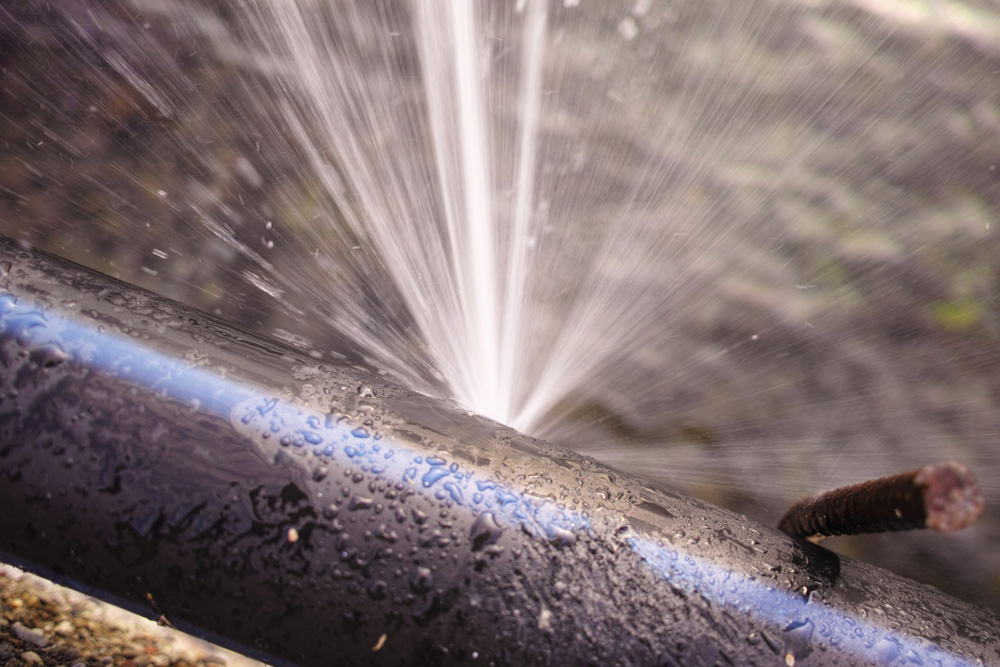Burst pipes can cause serious damage in any home or business, leading to flooded rooms, ruined property, mould growth, and expensive repair bills. There are many myths about why pipes burst, and separating truth from fiction is key to preventing costly plumbing emergencies. This guide breaks down what causes pipes to burst and how to prevent them, helping you better protect your home from one of the most common plumbing issues on the Gold Coast.
Quick Signs of Pipe Damage
Worried something might be wrong with your pipes? Look out for these common warning signs:
-
Wet patches on walls, floors, or ceilings
-
Unexplained increase in your water bill
-
Low water pressure or fluctuating flow
-
Sound of running water when taps are off
-
Discoloured water or unusual odours
-
Mould, mildew, or damp smells in enclosed spaces
If you notice any of these, call a licensed plumber as soon as possible.
Myth 1: Burst Pipes Only Happen in Older Homes
It is a common belief that only older homes suffer from burst pipes. This idea stems from the fact that older homes often have outdated galvanised steel pipes that corrode over time. While those materials do pose a higher risk, new homes are not immune.
Fact
Modern homes in Australia are typically fitted with copper or poly piping. While copper is strong and durable, it can still burst if exposed to prolonged water pressure, corrosion, or poor installation. Poly piping, now common in newer homes, is resistant to rust but can be compromised if it is placed too close to sharp surfaces or installed incorrectly.
Animals like rats and mice have also been known to chew through poly pipes in search of water, causing leaks and bursts. Regardless of how new your home is, the risk of a burst pipe is always present if the system is not installed correctly or maintained properly.
Myth 2: Pipes Only Burst in Cold Weather
In colder climates, frozen water inside pipes can expand and cause them to rupture. This has led many Australians to assume that burst pipes are not a concern in warmer areas like the Gold Coast.
Fact
While freezing is a common cause of pipe bursts in cold regions, it is not the only one. On the Gold Coast, temperature is rarely the issue. Here, burst pipes are more often caused by other factors like excessive water pressure, accidental damage, or underground movement.
Even without cold temperatures, your home or property can still be at risk if your plumbing system is exposed to these everyday stresses. Understanding the true causes will help you stay one step ahead of a plumbing disaster.
What Really Causes Pipes to Burst
Now that we have cleared up a couple of the most common myths, let us look at the real reasons pipes burst in homes and commercial buildings across Australia.
High Water Pressure
Water pressure that exceeds safe levels can stress pipes, joints, and appliances. If your home does not have a pressure regulator, or if your system receives pressure above 500 kilopascals, the internal strain can cause pipes to crack or fittings to blow out. This pressure can also damage taps, washing machines, dishwashers, and hot water systems.
Corrosion and Rust
Metal pipes naturally corrode over time. This weakens the structure of the pipe and can lead to leaks or bursts. Rust is often visible in the water before a break occurs. If your water is discoloured or smells metallic, it could be a sign that your pipes are beginning to fail.
Tree Roots
Some of the worst pipe bursts are caused not by faults inside the home, but by trees in the garden. Roots from fig trees, eucalyptus, palms, and other invasive species will grow toward underground water sources and can crack or crush water and sewer pipes. This often happens without warning and can result in major leaks.
Ground Shifts or Construction
Soil movement, landscaping, and nearby digging can all disturb underground pipes. Even using a shovel in the garden can result in a sudden pipe rupture if you are not careful. Water lines are often shallower than you think.
Vermin Damage
Rodents looking for water may chew through soft poly piping or insulation surrounding your pipes. This damage is especially common in wall cavities, under floors, or in ceilings.
Poor Installation
If a pipe is fitted too tightly, exposed to sharp edges, or lacks the right supports, it may break over time. Bursts can occur at joins, elbows, or anywhere fittings have not been installed to industry standards.
What to Do If a Pipe Bursts
A burst pipe can be stressful, but taking quick and correct action will reduce the damage and keep your home safe.
Step 1: Shut Off the Water
Find your main water shut-off valve and turn it off immediately. This will stop further flooding.
Step 2: Call a Licensed Plumber
Call an emergency plumber straight away. Let them know the location of the burst and how much water has escaped. At Oceanside Services, we offer 24 hour plumbing support.
Step 3: Begin Clean-Up
Use towels, buckets, or blankets to absorb excess water. Remove any items at risk of water damage. Open windows for ventilation to prevent mould growth.
Step 4: Avoid Electrical Hazards
If water is near powerpoints, switches, or appliances, do not attempt clean-up until a licensed electrician has inspected the area.
How to Prevent Pipe Bursts
Preventing a pipe from bursting is far easier and cheaper than repairing the damage after one happens. Here are some of the most effective ways to reduce your risk.
Monitor Water Pressure
Have your plumber test the pressure at your property. If it is consistently above 500 kilopascals, consider installing a pressure-limiting valve to protect your pipes and appliances.
Schedule Regular Plumbing Inspections
Routine checks can catch worn fittings, hidden leaks, or signs of corrosion before they cause serious problems.
Be Mindful When Digging
Always check where your underground services are located before starting any outdoor project. Dial Before You Dig is a free service that helps map utility lines.
Use Tree Barriers or Smart Landscaping
If you are planting trees, make sure they are placed away from water lines. Choose species with shallow root systems or install root barriers to keep them in check.
Upgrade Old Pipes
If your home has outdated galvanised pipes or copper lines showing signs of wear, it may be time to upgrade to modern, more reliable materials like PEX or pressure-rated poly.
FAQs About Burst Pipes
Are burst pipes covered by insurance
In many cases, yes. Most home insurance policies cover sudden water damage. However, slow leaks caused by neglect may not be included. Always check your policy and keep records of inspections and maintenance.
Can a small leak turn into a burst pipe
Yes. Small leaks weaken pipe integrity over time. What starts as a drip can eventually rupture under pressure.
Is it safe to use water after a pipe bursts
Not until a plumber has inspected the system. Contaminants may enter through cracks or broken joints.
How long does it take to fix a burst pipe
It depends on the location and damage. Some repairs can be completed in a few hours. Others, especially those involving excavation, may take longer.
Can I prevent bursts without replacing all my pipes
Absolutely. Regular maintenance, pressure regulation, and safe gardening practices go a long way.
Call Oceanside Services for Burst Pipe Repairs
If you suspect a leak or want to prevent future plumbing issues, Oceanside Services is here to help. Our licensed plumbers are available 24 hours a day for emergency repairs, inspections, and maintenance.
-
Experienced team across the Gold Coast
-
Fully licensed and insured
-
Same-day emergency service available
Call 07 5391 3580 or book online now to get expert help from a team you can trust.



 5 Star Service
5 Star Service 




